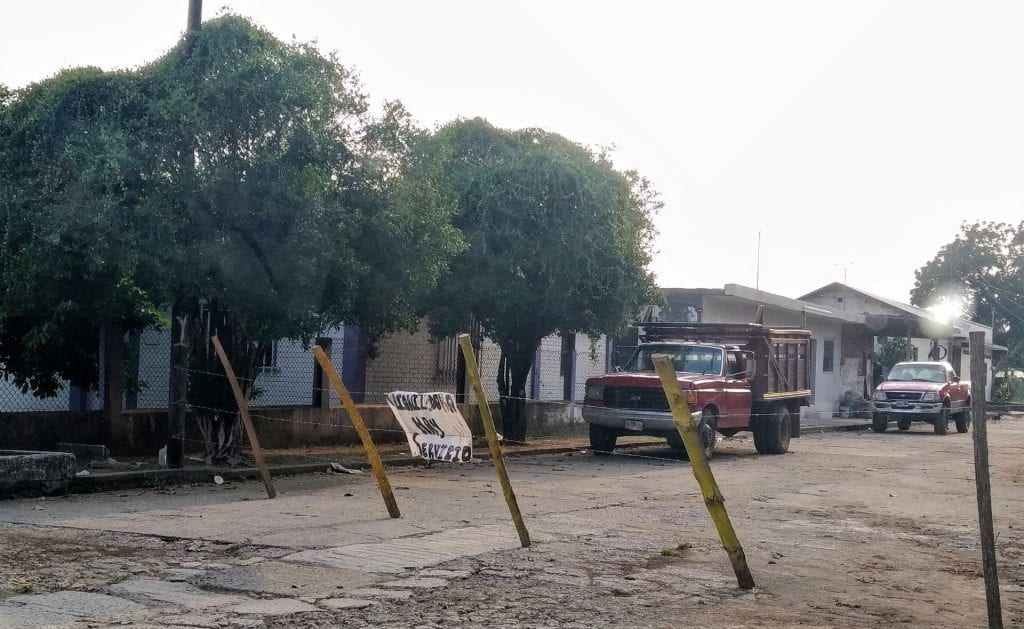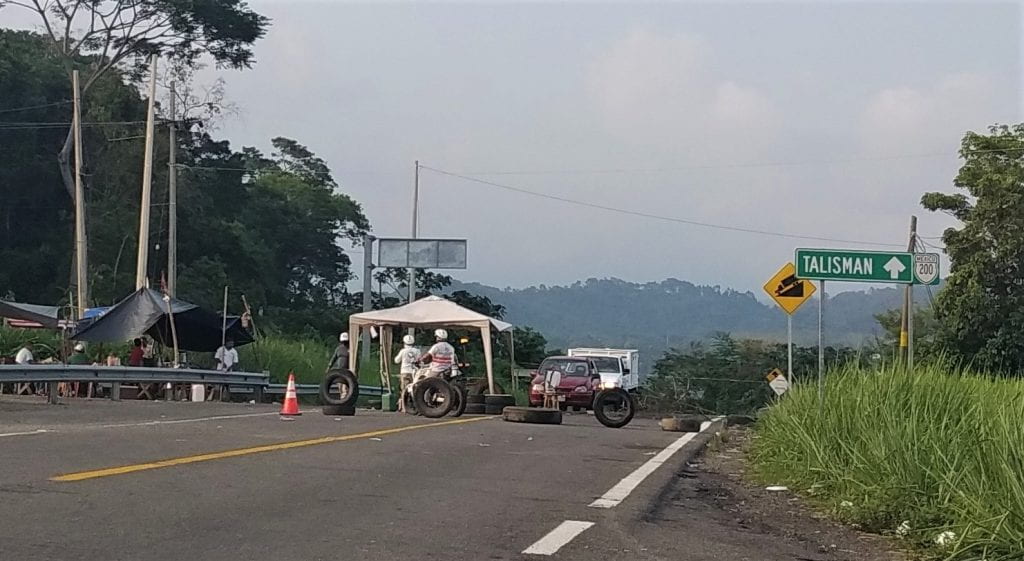Letter from Afar – the blog series about life and research in the time of COVID-19.
By Ailsa Winton.
Dear Bridget
I hope you are keeping well and sane. Although working at home is quite normal for me, the anxiety is not. So it was great to read your letter and to be able to share some thoughts!
I feel as if I am writing this from many places at once: from my home in Tapachula, at the southern tip of Mexico; from Guatemala where – until recently – I had been busily working on sabbatical research; and also from the UK, where I am virtually rooted to home and to loved ones. Living this ‘global’ event simultaneously through different places like that is interesting but quite unsettling; experiences, information, decisions and relationships take on an entirely different form in relation to each other.
Being a distant spectator even to things that are close by has been weird. When things happen, as they often do here, not being able to be physically present is odd and frustrating. But much more importantly, the fact that local NGOs can’t do any face-to-face work at the moment means many lifelines are being cut off for those who need them most. For many, economic precarity is becoming critical, especially among migrants.

In Guatemala, the government was fast to act, moving quite quickly to limit movement both from outside and within its borders. I was midway through some fieldwork on violence-based displacement there when rumours about shutdowns began to circulate in March. People in the rural communities in Huehuetenango where I had been working were worried about how they would be able to meet their basic needs in the face of strict curfews and severe restrictions on movement. I couldn’t help but think apocalyptically about what a major outbreak of COVID-19 would look like in those same places. Thankfully, this has not yet happened, but already high levels of food insecurity are now critical in many parts of the country.
For its part, Mexico’s official response so far in terms of control has been patchy and notably more relaxed than many neighbours to the south. There is definitely a sense that people do not feel protected or reassured in general, and abundant misinformation circulating on social media has stoked fears; there have been many reports of locals blocking roads to stop the intrusion of the infected outsider and, shockingly, many cases of attacks and threats of violence targeting healthcare workers and hospitals. So, as my dad back in the UK pops out to clap the NHS one Thursday evening as we chat on skype, I am reminded in a very crude way of the hugely complex social conditions shaping personal responses to this ‘global’ threat.
Meanwhile, the US-Mexico-Central America migration dystopia continues apace. Just one example: in April, the authorities in Mexico decided to bus hundreds of undocumented Central American migrants from detention centres in northern and central Mexico to the southern border with Guatemala with a view to ‘repatriating’ them. Nothing particularly unusual in that, except that they did this in the full knowledge that Guatemala had sealed its border weeks previously, making crossing to that or any of the other countries of origin impossible. So they left them at the border, hundreds of people with nowhere to go in the midst of a pandemic.

Some Guatemalans decided to cross the river dividing the two countries, bypassing border controls, and try their luck with the police-enforced curfew on the other side. But most were stuck, left to weigh their barely existent options. Amidst rising tensions with locals, the National Guard was forced to intervene to remove the offending migrants, loading them onto buses again only to dump them in groups outside Tapachula, the nearest large town some 15km away from the border. An atrocious act under any circumstances, but especially now with migrant shelters and other services closed, and even public space cordoned off. But what else to do with these disposable bodies when they can no longer be discarded in the usual receptacles (detention centres, migrant shelters, countries of origin), other than to just toss them on the side of the road?
Like you, I am particularly struck that many people have suddenly become aware of mobility as something that shapes life. I suppose like other types of privilege, that of being able to choose your mobility is invisible to those who benefit from it, until it is challenged. As a migrant who studies human mobility, I have certainly been made aware of my own mobility privilege, and I have also witnessed first-hand over many years the noxious effects of precarious mobility. You are spot on with what you say about ‘precarious migrant time’. I see so clearly now amidst so much uncertainty that one of the privileges of being able to choose your mobility is the degree of certainty it affords.
I look forward to reading your piece on corona-nationalism! This massive systemic rupture is so full of transformative potential, but of course it also brings a real danger of that transformation taking us down dark paths. There is so much to reflect on and learn about collectively. So it is really encouraging to see so much excellent critical thinking already coming out. Notice how flexible academic time can be when it wants! Let’s hope those voices start to talk and pull together.
Keep in touch! There’s another platitude turned genuine.
Warm wishes,
Ailsa

